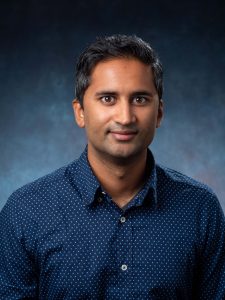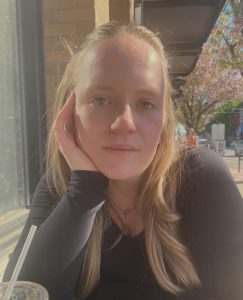

(Photo by Patrick Campbell/University of Colorado)
We’re excited to welcome back Dr. Pranav Chintalapati to UBC as an Assistant Professor of Teaching in the UBC Chemical and Biological Engineering department! Dr. Pranav Chintalapati is back at his alma mater where he completed his undergrad and masters degree in Chemical Engineering. During his undergraduate degree at UBC, he also took part in an ORICE course called Global Engineering Leadership (APSC 461) and completed his International Service Learning (ISL) placement in Mexico. We sat down with him recently to chat more about his journey, the impact that ISL has had on his trajectory and the importance of experiential learning for students.
Congratulations on your appointment as an Assistant Professor of Teaching at UBC! I hear you did your PhD in a Global Engineering program, what did you research broadly and what led you in that direction?
PC: Thank you! It’s so exciting to be back at UBC. Yes, I did my PhD in Environmental Engineering at the University of Colorado Boulder and conducted my research through the Mortenson Center in Global Engineering. I was researching how different maintenance strategies could improve the reliability of rural water services, focusing mostly in Kenya as well as in Uganda, Ethiopia and the Central African Republic.
As a chemical engineering student, I became interested in water treatment and did my undergrad and masters theses on different treatment technologies that were particularly suited for under-resourced communities. During my masters, I also spent some time working with Reseau in collaboration with indigenous communities on improving their water quality. Those experiences along with my experiences with ISL led me to pursue a PhD that combined my interests in community-based engineering and safe and reliable water access.
During your undergraduate degree at UBC, you participated in the ORICE international service learning (ISL) program with Tsomanotik, an agroecological organization in Mexico. Reflecting back on that time, are there any lessons or experiences that stand out as meaningful to you? If so, why?
PC: My time with ISL was a formative experience that really helped shape my career. Ironically, “global” engineering evokes images of worldwide scale, but I learned that impact really happens at the community level. What I took away from my ISL experience was the importance of investing in genuine relationships. The connections you form with people are what drive your work towards successful outcomes. In the 10+ years since my first visit to Tsomanotik, that’s a lesson I’ve carried with me throughout my career and it continues to be reinforced.
Now that you are back at UBC as an Assistant Professor, based on your experience, what do you think the value of experiential learning is for students?
PC: I think of experiential learning in contrast to discretized learning activities that focus on singular outcomes. Experiential learning offers a more integrated, holistic learning process where students are simultaneously developing a variety of skills. I feel like there’s more potential for mutually reinforcing skill development through experiential learning – like a symbiotic educational experience. And this gets compounded as students co-learn in groups. Once you start adding layers of context, environment, history, roles, power, etc. the experiences can be overwhelming. That’s why I like to incorporate reflection (another tool I learned from my ISL experiences!) into experiential learning, so students have space to distill meaning from their experiences.
Thank you for taking the time to chat more with us today Dr. Pranav Chintalapati! The ORICE team is looking forward to collaborating with you in your new role as Assistant Professor of Teaching!
PC: Thanks for reaching out! I’m so excited to work with Tam, and the whole team at ORICE as well.




